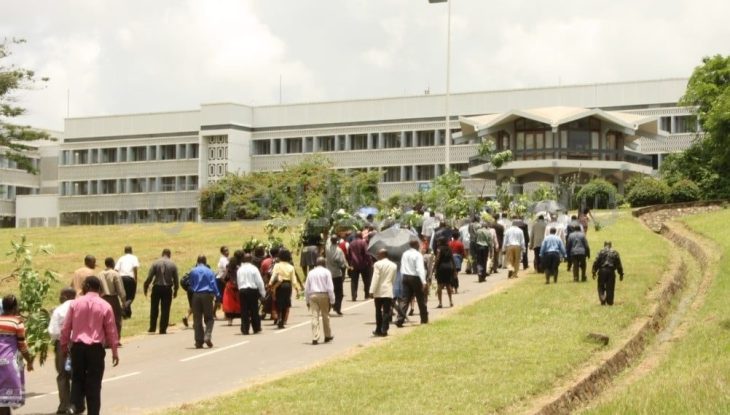
Malawi’s Public Sector Budget Cuts: How Will Your Business be Affected?
Key Business Points
- The real incomes of public sector workers in Malawi have fallen by 50% over five years, making it difficult for them to afford essentials.
- 97% of health workers and 90% of teachers reported struggling to cover basic expenses, highlighting the need for better pay and working conditions.
- The government’s allocation of funds to the education and health sectors is crucial, with the African Union’s Abuja Declaration and Dakar Commitment recommending 15% and 20% of the national budget for healthcare and education, respectively.
Malawi’s public sector is facing a severe crisis, with a 50% fall in real incomes over five years, according to a new research report. The May 2025 Human Cost of Public Sector Cuts in Africa research reveals that 97% of health workers and 90% of teachers are struggling to cover basic expenses. In Malawi, 95% of health workers reported budget shortages for equipment and medicines, while 100% reported inadequate pay. The situation is further exacerbated by the fact that 95% of health workers struggled with covering school-related expenses.
The education sector is also suffering, with 87% of teachers reporting shortages of basic classroom materials. A primary school teacher quoted in the report expressed the challenges of delivering quality education with inadequate teaching and learning materials. ActionAid is calling on the education and health ministries to work with finance ministries to allocate sufficient resources to meet global benchmarks and ensure fair remuneration for workers.
The research highlights the need for new international rules on global economic governance that shift decision-making power away from institutions like the IMF and towards democratic institutions like the United Nations. The current debt crisis and drive for austerity are amplified for countries in the Global South and low-income countries, especially due to an unfair global economic system.
In the 2025/26 National Budget, interest payments are projected to account for half of the projected domestic revenue collection, leaving limited funds for essential public services. The government has allocated K1.3 trillion to the education and skills development sector, representing 16.6% of the national budget, which is below the recommended 20% by the African Union’s Dakar Commitment. The allocation of funds to the education and health sectors is critical to improving healthcare access and education quality. Civil Society Education Coalition board chairperson Limbani Nsapato has highlighted the need for better funding, citing an expenditure tracking exercise that revealed critical programs within the sector remain grossly underfunded.
What are your thoughts on this business development? Share your insights and remember to follow us on Facebook and Twitter for the latest Malawi business news and opportunities. Visit us daily for comprehensive coverage of Malawi’s business landscape.
- Malawi’s Tourism Boom: A K1 Trillion Opportunity for Business Growth! - March 4, 2026
- Bad Loans Fall: Positive Shift Signals Economic Recovery - March 3, 2026
- Bank Levy Deductions Spark Public Outcry and Economic Debate in Malawi - March 3, 2026
